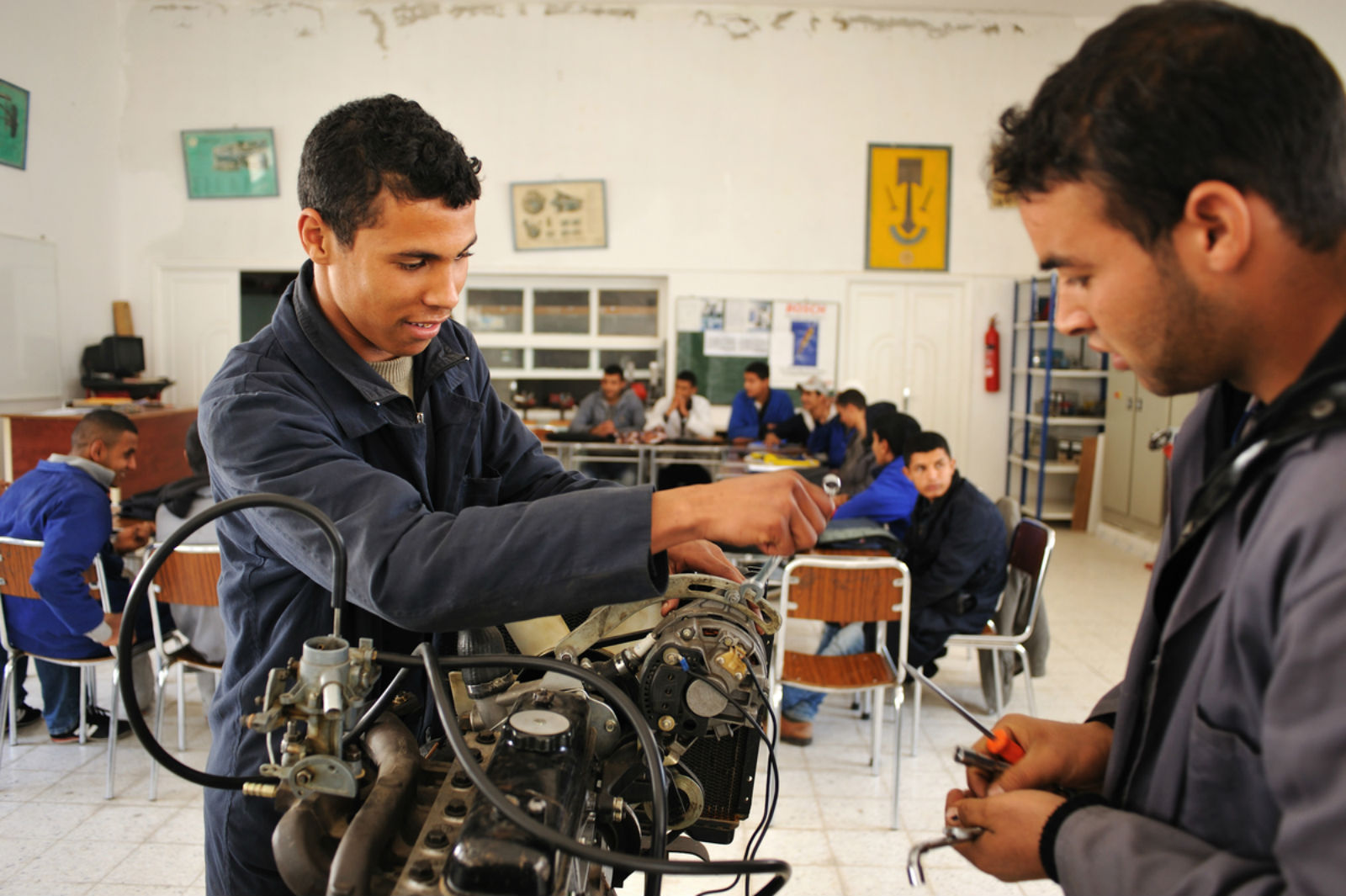
Gov’t wants to grow Egypt’s vocational and technical schools, with the help of the private sector

The Education Ministry is on the lookout for 400 industrial partners to expand vocational + technical schools: The Education Ministry recently launched a strategy to grow the number of vocational schools in Egypt and introduced a package of incentives and perks designed to reel in more private sector partners to develop these schools.
A lay of the land: We currently have 48 vocational schools, developed in partnership with more than 40 corporations in manufacturing, agriculture, hotels and hospitality, and retail, Deputy Education Minister for Technical Education Mohamed Megahed told Enterprise. That’s up from just 11 schools back in 2020, he said. The ministry has been working on the vocational school system since September 2018, with the goal of making it a complete educational system capable of developing technical education in Egypt to help yield graduates who are prepared for the job market.
The government is setting its ambitions higher with its plans for vocational schools: The ministry had initially been planning to set up 100 vocational schools with private sector industrial partners by 2030 at a pace of 10 schools per year, Megahed told us. That plan has now been amended to target 400 new schools, according to ministry spokesperson Shady Zalata. The ministry has not set a timeline for the new plan, Zalata told Enterprise, but noted that it’s a top priority for the ministry as the private sector is working with the government to tie these schools to the needs of the job market. The types of schools and coursework are being designed in accordance with what manufacturers need, in order to create a trained and skilled workforce.
We also want to see a greater proportion of high school graduates pursuing vocational and technical training, with the government looking to hit a target of 70%, up from 55% currently, Planning Minister Hala El Said previously said. The government is also looking to implement certain standards for vocational training, with specific metrics for each industry, while also setting up sector skill councils in select applied technology schools. The strategy also entails establishing centers of competence while growing the number of technical schools in lockstep with industrial zones.
The private sector is getting “unprecedented” support and incentives to join in on the strategy, Zalata and Megahed told us. The national higher education strategy, which the Higher Education Ministry unveiled last week, includes a pillar focused on technical and vocational schools and will focus on expanding tech colleges (of which there are currently nine in the country). The strategy will expedite the approval process for these schools and universities, along with providing fully built and prepared schools that will be handed over to private sector players to manage, according to sources from the Higher Education Ministry we spoke with. Cutting red tape was among the key demands from the private sector to make the system more appealing, our sources had previously told us.
Private sector players are on board — and see ample value in what the government is trying to do: The government’s strategy is appealing to the private sector and encourages businesses to meet their social responsibilities, Elsewedy Technical Academy Executive Director Hanan Rehany told Enterprise. There’s been a marked — and welcome — policy shift in bringing NGOs and private sector companies into the fold in the past few years, particularly as there are clear efforts to facilitate certain procedures that were previously difficult, Rehany said. Rehany also hailed the inclusion of practical coursework alongside practical lessons in vocational and technical schools’ curricula, which have raised the quality of overall education. The introduction of new specializations is also part of the government’s plans to expand vocational and technical education in line with Egypt Vision 2030, Megahed explained.
We can expect to see the private sector getting in on more of these institutions in the near future: Elsewedy Technical Academy plans to inaugurate a new applied technology school in Ain Sokhna in 2024, with the academy taking responsibility for its construction, Rehany said. The academy is also separately cooperating with the government in its plans to launch international technical schools, she said. The ministry also launched Egypt’s first applied technology and construction school last month in partnership with the Sawiris Foundation for Social Development. The school — which operates on a three-year curriculum — will provide both theoretical and practical coursework once it opens its doors to students in the 2024-2025 academic year.
Your top education stories for the week:
- CIRA Education published its first annual sustainability report, laying out the company’s use of natural resources and what it is doing to boost sustainability at its facilities and operations.
- Higher ed strategy: Government officials put forth a host of recommendations to advance higher education at the launch of the new national strategy for higher education.
Enterprise is a daily publication of Enterprise Ventures LLC, an Egyptian limited liability company (commercial register 83594), and a subsidiary of Inktank Communications. Summaries are intended for guidance only and are provided on an as-is basis; kindly refer to the source article in its original language prior to undertaking any action. Neither Enterprise Ventures nor its staff assume any responsibility or liability for the accuracy of the information contained in this publication, whether in the form of summaries or analysis. © 2022 Enterprise Ventures LLC.
Enterprise is available without charge thanks to the generous support of HSBC Egypt (tax ID: 204-901-715), the leading corporate and retail lender in Egypt; EFG Hermes (tax ID: 200-178-385), the leading financial services corporation in frontier emerging markets; SODIC (tax ID: 212-168-002), a leading Egyptian real estate developer; SomaBay (tax ID: 204-903-300), our Red Sea holiday partner; Infinity (tax ID: 474-939-359), the ultimate way to power cities, industries, and homes directly from nature right here in Egypt; CIRA (tax ID: 200-069-608), the leading providers of K-12 and higher level education in Egypt; Orascom Construction (tax ID: 229-988-806), the leading construction and engineering company building infrastructure in Egypt and abroad; Moharram & Partners (tax ID: 616-112-459), the leading public policy and government affairs partner; Palm Hills Developments (tax ID: 432-737-014), a leading developer of commercial and residential properties; Mashreq (tax ID: 204-898-862), the MENA region’s leading homegrown personal and digital bank; Industrial Development Group (IDG) (tax ID:266-965-253), the leading builder of industrial parks in Egypt; Hassan Allam Properties (tax ID: 553-096-567), one of Egypt’s most prominent and leading builders; and Saleh, Barsoum & Abdel Aziz (tax ID: 220-002-827), the leading audit, tax and accounting firm in Egypt.